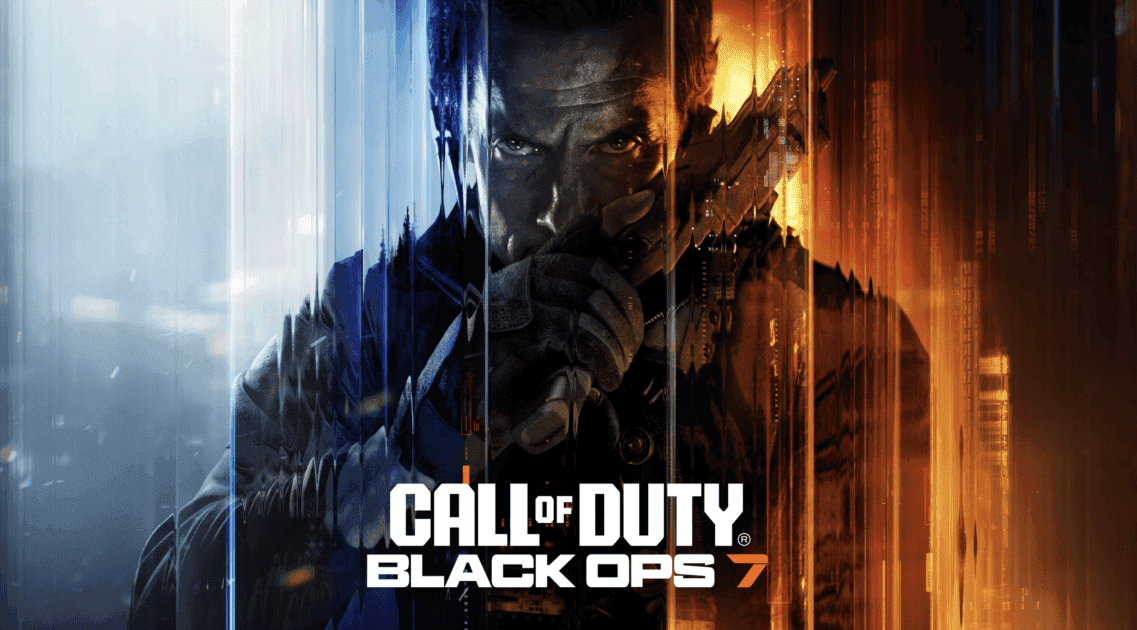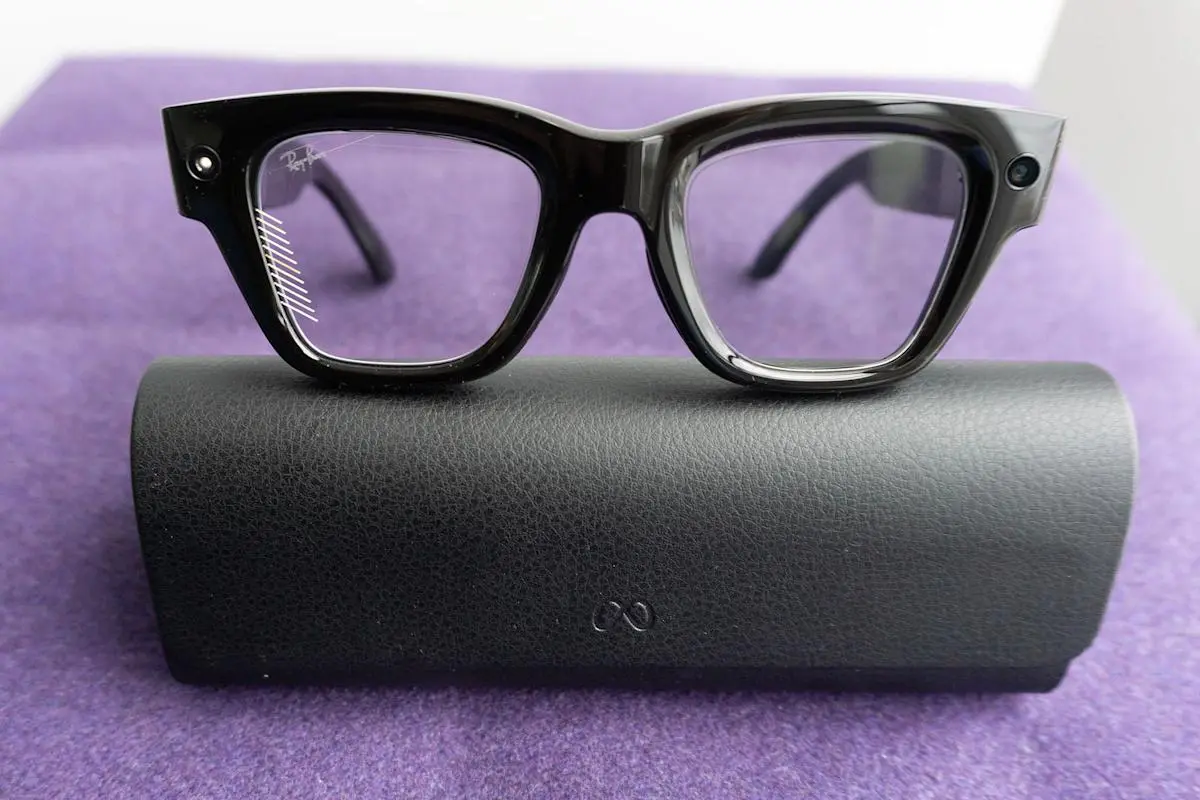Activision's AI-Generated Game Ads Spark Controversy and Criticism
5 Sources
5 Sources
[1]
Finding a new and inventive way to annoy everybody, Activision has company use AI to generate fake advertisements for games that don't exist
Activision, which has recently fully doubled-down on using AI slop art assets in its games, has also coincidentally invented a new and bespoke way to annoy you for seemingly precious little gain. Picture this: You see an advertisement for a new game from a trusted developer. You think hey, that looks interesting, let me give it an install. Then, like the world's most irritating and harmless bear trap, a market research firm pulls back the rug and says haha, you fool, you absolute moron, that wasn't a real game. That is, in essence, what is happening -- including with the purported Guitar Hero Mobile advertisement that made the rounds on Instagram for its shoddy AI-generated artwork. Turns out no, there isn't a Guitar Hero Mobile game, it's just a devious scheme to get you to do a survey. Other non-games advertised by the big A include (thanks, Eurogamer) such industry-shaking concepts as "Call of Duty: Zombie Defender", "Call of Duty: Sniper", and "Crash Bandicoot Brawl" Here's the artwork for the very latter, by the way, which features such iconic Crash Bandicoot characters as Crash Bandicoot, another Crash Bandicoot, a third Crash Bandicoot, Crash Bandicoot with Googly Eyes, and Mutant Squirrel with Palm Leaf Growth. Clicking on any of these leads you to a spoof store page with more AI-generated garbage, including fake review scores, downloads, and age ratings. Click "install", and Geeklab finally gives up the charade, writing: "Thanks for your interest! This isn't a real game, but [it] could be some day! We'd love if you could answer this short survey, which could help inform the potential future of this game. Your feedback really matters to us!" Just out of curiosity, I decided to fill one of these out. First off, Geeklab has the gall to ask me what made me click on the advertisement -- well, I'm not a journalist, but I think the layman might've been tricked by your fake store page. Answers include such valuable data as "the colors" and "the characters", which presumably will give Activision such vital data as, uh, people like colours and Crash Bandicoot. After answering if I play mobile games often (I don't) or if I've played any of the Activision mobile games that actually exist (I haven't), we get to the real meat of this market research. In theory, this whole shebang could inform Activision what types of games they're hungry for -- a sort of gently coerced brainstorming session. Still annoying, but I can see the objective at least. Except, when I'm asked "based on the advertisement what would you expect the game to be?" The answers are pretty much useless. If I were a suit at Activision, and the market research firm I'd paid just told me my userbase expects my games to be 'High Quality, Interesting, and Exciting', I might very well throw them out the window. Lastly, Geeklab wants you to tell Activision why you play mobile games. I chose "to escape from my day to day", because I currently have a nasty bronchial cough and it's the most honest answer I could give them. My reward? A random confetti spray of explosion, rainbow, and party emojis. I cannot fathom... well, several things about the decisions that were made to get up to this point. I do understand that data is incredibly valuable in our digital age, sure -- but, like a lot of AI-generated nonsense that's made its way into gaming as of late, I can't help but wonder whether the value generated by this info is worth pissing everybody off. These adverts, in isolation, make Activision look like it's becoming an AI-generated slop company, churning out mobile game after mobile game -- and even if someone gets hoodwinked into wanting to play one of these things, they'll be left with a sour taste in their mouth as a survey gets shoved in their face. But hey, at least Activision knows I wanted to escape to the world of three Crash Bandicoots and his melty-faced friends.
[2]
Activision Apparently Using AI Art to Float Concepts for Guitar Hero, Crash Bandicoot
Crash Bandicoot: Brawl and Call of Duty: Zombie Defender are not games that actually exist (yet), but social-media users on platforms such as Instagram are still seeing seemingly AI-generated ads from Activision, the company that owns those franchises. A representative for Activision did not respond to a request for comment, and has not commented publicly about the ads. Several gaming sites have pointed to examples users have encountered. One, for example, features a new Guitar Hero Mobile game that has not been announced and is not known to even be in development. Users say the ads lead to a marketing survey about whether it's the type of game they'd want to play. Apart from the fictitious nature of the ads, or concepts, Activision has drawn criticism for the quality of the art images, which are believed to be AI-generated. The art has drawn comparisons to AI slop, basically AI imagery or videos that are no better than spam. Activision has been caught in the crossfire recently over another instance of AI usage. Last week the company confirmed that parts of recent games including Call of Duty: Black Ops 6 used AI-generated content.
[3]
Activision shares first look at Guitar Hero Mobile and, yeah, it looks like AI slop
Fans are calling Activision out for it's continued use of AI in promotional ads Activision has just announced Guitar Hero Mobile with what appears to be an AI-generated artwork, but the game isn't even real. The Call of Duty publisher revealed the first look at its new game for smartphones on its Instagram with a promotional advertisement. Guitar Hero Mobile's logo is front and centre, however, looking closer it's quite obvious that the rest of the image is AI-generated. The artwork features four figures standing on a stage holding guitars but they're unrecognizable, the crowds on either side look sloppy, and the equipment in the background is misshapen. Not to mention the odd-looking colored guitar fret buttons that play a huge part in the rhythm game series. A lot of fans were able to spot the post's inconsistencies, and are now calling Activision out for its use of generative AI. "A.I. Hero looks awesome," one user said. "Gotta love a multi-million dollar company using AI to come back after their past banger games," said another. Over on Reddit, the responses aren't much better. "This genuinely looks horrendous. This is like 2-3 generations old as far as AI generated images are concerned," one Redditor commented. If the AI didn't put you off, then perhaps the fact that Guitar Hero Mobile doesn't even exist will. The official download page on a website called Geeklab shows even more ai-generated images with a description that boasts a "fast-paced, competitve mobile rhythm game" where players "face off in real-time musical battles, hitting notes in sync with the music to climb the global leaderboards and become the ultimate rockstar". However, after clicking the "GET" link, it will take you to a survey that will thank users for their interest. "This isn't a real game, but could be some day!" it reads. "We'd love if you could answer this short survey, which could help inform the potential future of this game. Your feedback really matters to us!" The Guitar Hero Mobile announcement is likely an attempt to gauge players' interest. Similarly, Activision did the same thing last month for a new Call of Duty mobile game called Call of Duty: Zombie Defender. The advertisement on its Instagram account used AI-generative images, and the install button also led users to a survey with the aforementioned statement that stated it wasn't "a real game". In other related news, Activision has finally admitted to using generative AI for some Call of Duty: Black Ops 6 assets (via IGN). After fans discovered evidence of the fact three months ago, Activision has now confirmed the use of AI to align with Steam's new AI disclosure rules.
[4]
Activision "AI slop" Guitar Hero advert is market research for a fake game that doesn't exist and maybe never will
Activision's social media post advertising a new entry in the Guitar Hero series is market research for a game that doesn't exist, and is not meant to be an actual announcement, Eurogamer understands. The fake advert - which has been dubbed "AI slop" for its use of poorly-generated imagery - is one of several tests currently being run across the publisher's social media profiles. These adverts also include new smartphone games in other Activision franchises such as Call of Duty and Crash Bandicoot that also don't exist (yet) either. Clicking on some of the adverts will take you through to a mocked up mobile store page organised by marketing service Geeklab, and then onto a survey that reveals "this isn't a real game, but could be some day!" Market research questions then include queries asking users what made them click on the advert and what gameplay features they expected the game to include, based on the fake advert. Activision posts on Instagram and Facebook have similarly advertised "Call of Duty: Zombie Defender", "Call of Duty: Sniper" and "Crash Bandicoot: Brawl". Artwork for the latter game, hosted on Facebook, again shows obvious use of AI image generation. One squirrel-like character appears to be missing half a face. Will any of these Guitar Hero, Crash Bandicoot or Call of Duty smartphone games ever see the light of day? That remains to be seen. If and when they do, however, here's hoping Activision hires some actual humans to work on their artwork. Activision recently added a warning label to the Steam page for Call of Duty: Black Ops 6 confirming the game "uses generative AI tools to help develop some in-game assets", after players spotted various in-game examples - including a zombie Santa Claus with six fingers.
[5]
It's official, Activision has sold its soul to the AI overlords
Activision has faced backlash for using AI in promos for its new Guitar Hero, Crash Bandicoot, and Call of Duty mobile games. It comes after fans slammed the game publisher's recent confession, admitting it used AI in its new Call of Duty assets. While suspicions had been circulating for months, it's disappointing to see Activision fully embracing lazy AI imagery with no sign of stopping, despite strong flack from fans. While there are ways to use AI properly for productivity and enhanced creativity, Activision's sloppy usage demonstrates the less desirable side of the technology. In an industry that's increasingly snubbing the unique talents of creatives, arguably it's hard to see Activision's AI use as anything other than lazy corner-cutting. Fans first noticed the AI slop on an Instagram promo for Guitar Hero Mobile (a game that isn't even out yet). Featuring a janky image of four guitar players on stage performing for an eerily lifeless crowd of seated fans, the game-inaccurate fretboard displaying the wrong button colours is the cherry on top, suggesting the design was created with little attention to detail. Fans didn't hold back their criticisms, with one writing "Wow. It appears they're still using Midjourney 1.0. I haven't seen AI art this bad since the early days." Another added, "Too cheap to hire an artist? Too cheap to even use a decent AI art generator even," another added. "If you can't be bothered to make proper artwork for your announcement then I've less than zero faith the game will be any good," a third scathingly wrote. Similarly schlocky AI ads were found promoting the (also currently fictional) games Call of Duty: Zombie Defender and Crash Bandicoot: Brawl. According to 80.lvl, the fake promos were created to gauge interest from fans, but with uninspired design and sloppy attention to detail, it's not giving gamers much faith in the future of Activision's games. As a huge fan of Activision's early 2000s gaming legacy (Guitar Hero III, I'm looking at you), it's disappointing to see the company slump into sloppy AI usage. Whether we like it or not AI technology is permeating all industries, the least we can hope for is it won't be quite so blatant. It's not just Activision that's embracing the new technology, EA's also going all in on AI for video game design, but with artists standing up for their rights against AI threats, there's still time to reshape the industry for the better.
Share
Share
Copy Link
Activision faces backlash for using AI-generated imagery in advertisements for non-existent mobile games, raising questions about the company's marketing strategies and use of artificial intelligence in the gaming industry.

Activision's Controversial AI-Generated Game Advertisements
Activision, a major player in the gaming industry, has recently stirred controversy by using AI-generated imagery to advertise non-existent mobile games. This move has sparked criticism from fans and industry observers alike, questioning the company's marketing strategies and use of artificial intelligence
1
.The Fake Game Advertisements
The company has been promoting several fictitious mobile games, including:
- Guitar Hero Mobile
- Call of Duty: Zombie Defender
- Call of Duty: Sniper
- Crash Bandicoot Brawl
These advertisements, featuring AI-generated artwork, have been circulating on social media platforms such as Instagram and Facebook
2
. The images have been widely criticized for their poor quality, with many users describing them as "AI slop"3
.Market Research Tactics
Upon clicking these advertisements, users are directed to a mock-up mobile store page organized by marketing service Geeklab. Instead of leading to an actual game, the "install" button reveals a survey stating, "This isn't a real game, but could be some day!"
4
.This tactic appears to be a form of market research, gauging user interest in potential future games. The survey asks questions about what attracted users to the advertisement and what gameplay features they expected based on the fake ad
1
.Criticism and Backlash
The use of AI-generated imagery and the deceptive nature of these advertisements have drawn significant criticism:
- Quality concerns: Many users have pointed out the poor quality of the AI-generated images, noting inconsistencies and errors in the artwork
3
. - Lack of authenticity: Fans have expressed disappointment in Activision's decision to use AI instead of hiring artists for promotional material
5
. - Ethical questions: The practice of advertising non-existent games has raised concerns about the ethics of such marketing tactics
1
.
Related Stories
Broader AI Usage in Activision
This controversy comes in the wake of Activision's recent admission to using generative AI for some assets in Call of Duty: Black Ops 6. The company added a warning label to the game's Steam page, confirming the use of AI tools in developing in-game assets
2
5
.Industry Implications
Activision's embrace of AI technology for both game development and marketing raises questions about the future of creativity and human involvement in the gaming industry. While AI can enhance productivity, critics argue that its current implementation by Activision demonstrates a concerning trend towards cost-cutting at the expense of quality and authenticity
5
.As the gaming industry continues to evolve, the balance between AI utilization and human creativity remains a contentious issue. The response to Activision's AI-generated advertisements may influence how other companies approach similar technologies in the future.
References
Summarized by
Navi
[4]
[5]
Related Stories
Activision Faces Backlash Over AI-Generated Content in Call of Duty and Guitar Hero
25 Feb 2025•Technology

Call of Duty: Black Ops 7 AI Art Controversy Sparks Congressional Call for Regulation
14 Nov 2025•Policy and Regulation

Activision Reportedly Uses AI to Generate Call of Duty: Modern Warfare 3 Cosmetic, Sparking Industry Concerns
24 Jul 2024

Recent Highlights
1
OpenAI secures $110 billion funding round from Amazon, Nvidia, and SoftBank at $730B valuation
Business and Economy

2
Trump orders federal agencies to ban Anthropic after Pentagon dispute over AI surveillance
Policy and Regulation

3
Google releases Nano Banana 2 AI image model with Pro quality at Flash speed
Technology





